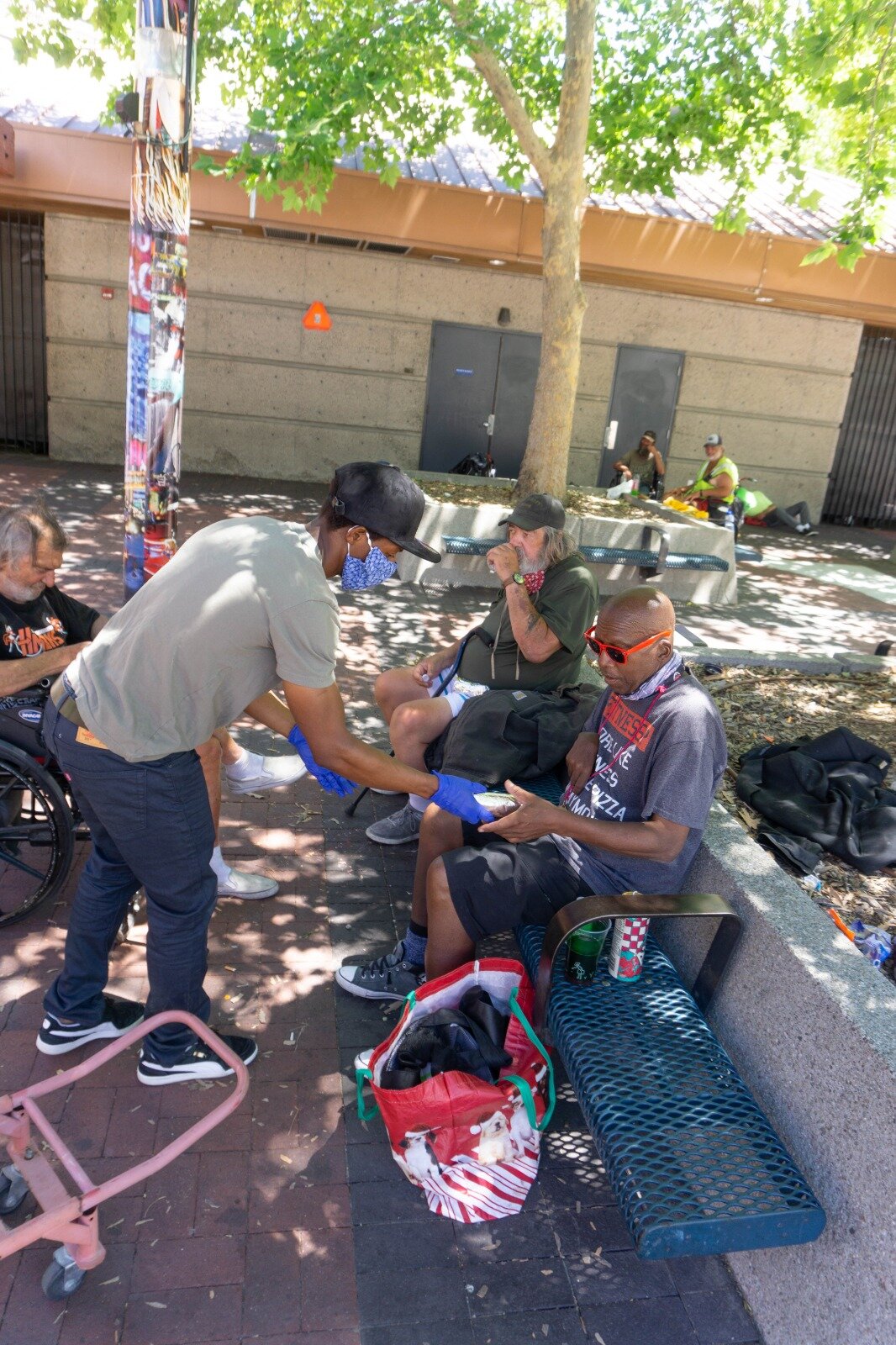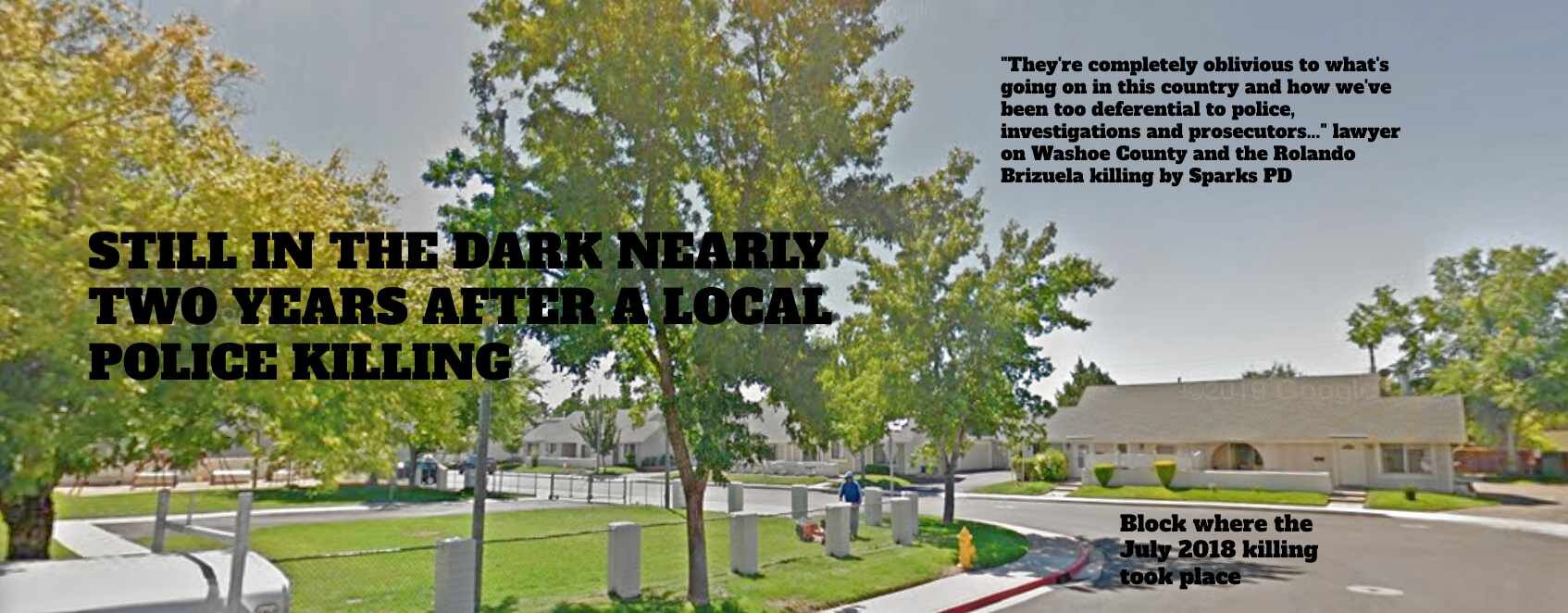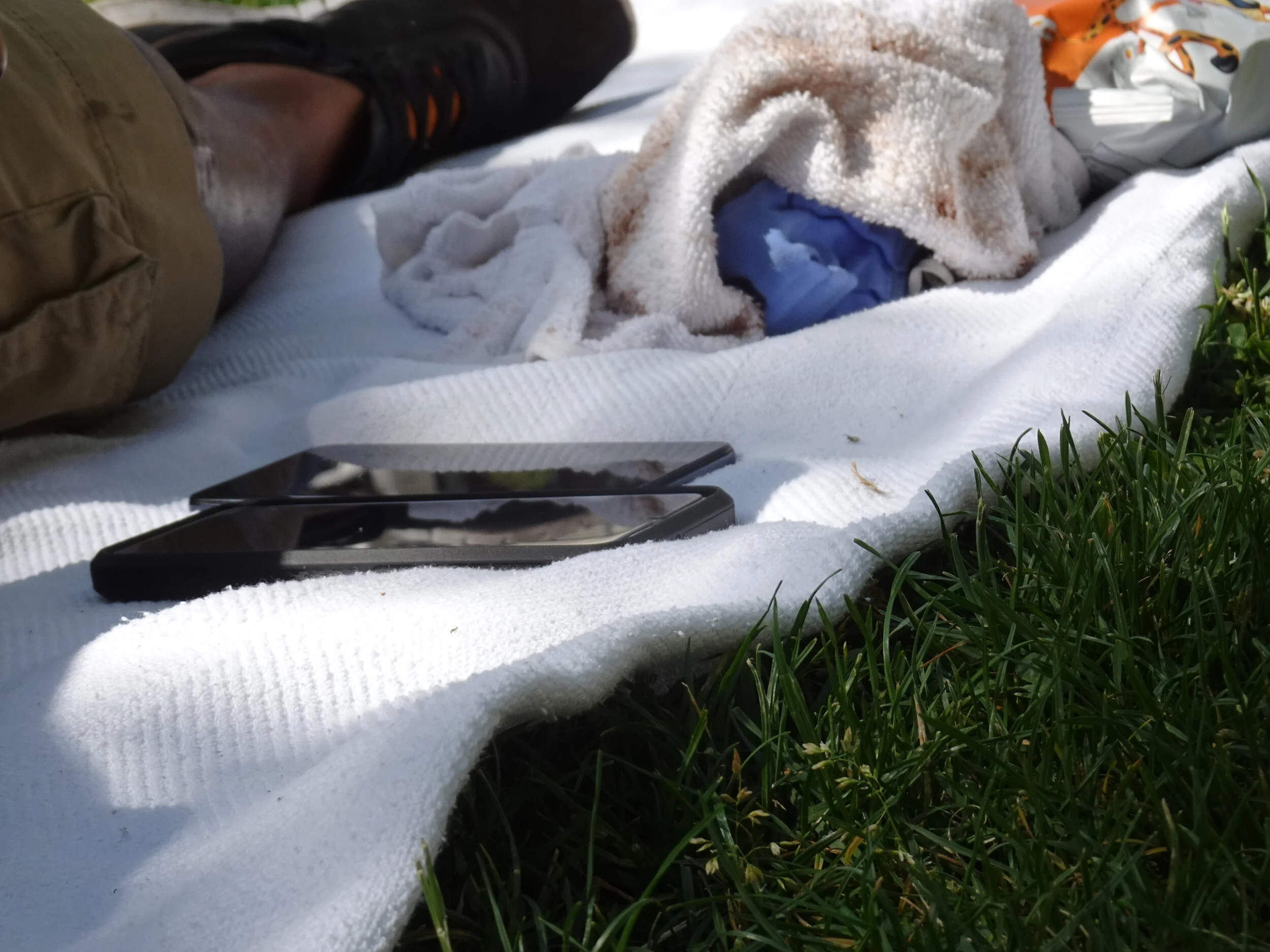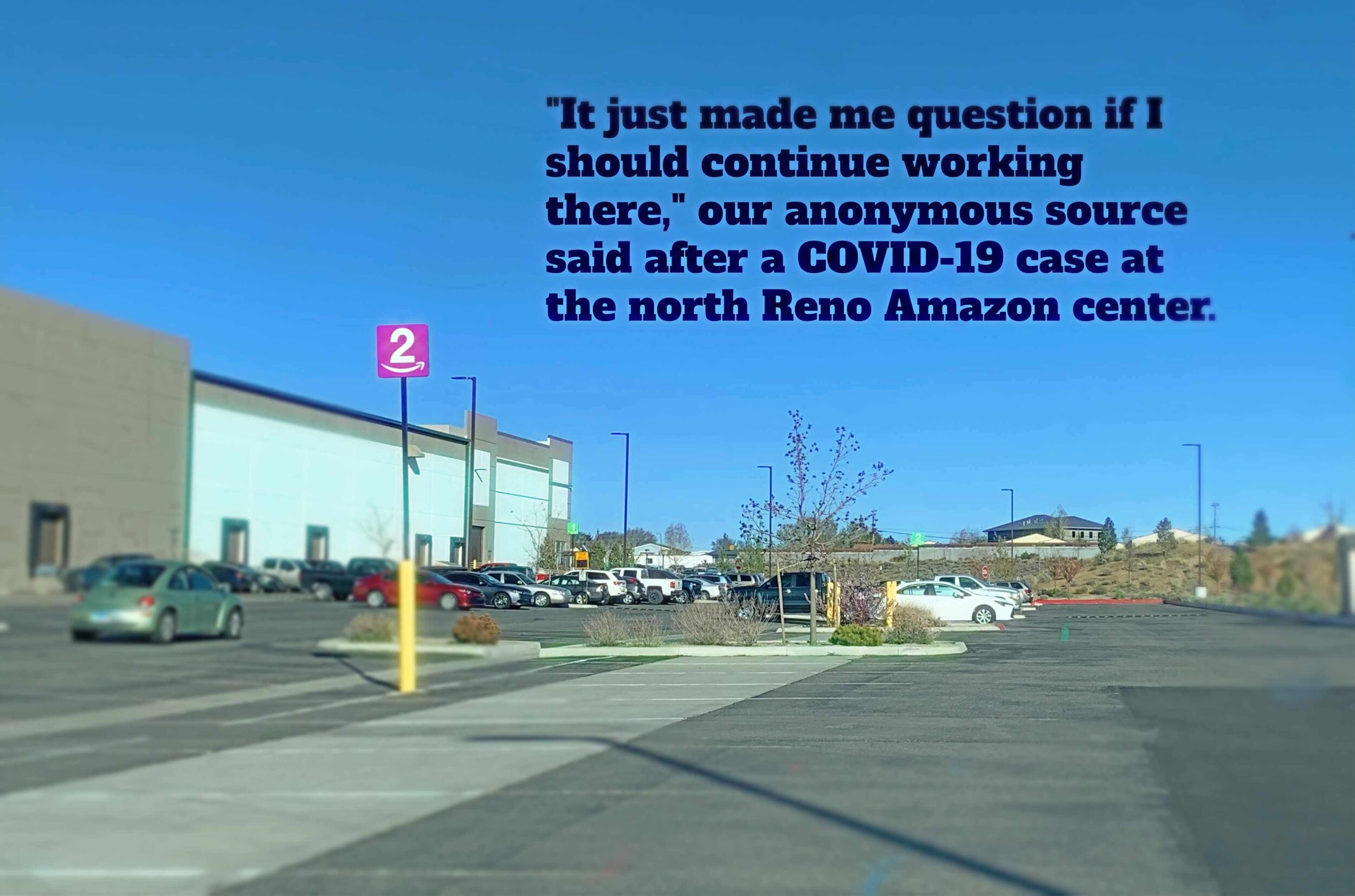From Ghana to Roberto’s with a Spirit To Help
As soon as he arrived in the Biggest Little City to start a new adventure, which now includes pursuing a master’s degree, ramping up his social media and media skills, teaching math, boxing and learning how to play tennis, Abuntori Blaize Akanaab noticed people without stable shelter, pushing grocery carts in downtown corridors.
“This is not something that is common where I grew up, because I mean, we have like a very big family system,” he said of differences with Ghana. “So you would always find somebody to stay with. I just felt like I wanted to do something about it the best way that I could at this moment with the resources and the skills that I have. After thinking about it for so long, I decided that one day I wanted to do it. So I went to Roberto's and in my mind the first thing that came to my mind was to provide something, some food. So I went to Roberto's, I went and got five burritos or four of them. And I was like, I'm going to hand these over before I get home.“
He says before he got past Walgreen’s, all the burritos had been handed out. He then asked his roommate for a recipe she usually did for tacos, bought rice and beef, and invited friends over to help him roll burritos which he had never done in his life.
“One thing led to another,” he said. “And then the first day we were about five people and then we rolled 15 burritos and then we just drove around,” passing them out.
Blaize sets out near his home, next to Apple’s downtown warehouse, to find people to hand out healthy burritos and water bottles to on a hot July Sunday.
Finding the Drive for Persistence and Consistency
Blaize says his team of mostly international students now makes up to 40 burritos for its weekly distribution, which has been on Sundays lately. He says that’s “what their finances can handle,” for now. They used to change days, but people in need recently told them Sunday was a day they often went without a healthy lunch.
People are starting to anticipate their arrival now, as a communal burrito wagon. “They walk up to us and then we smile and we have little conversations and over time it got more comfortable. There's this guy who is in a wheelchair, he has like the biggest heart. He smiles and makes funny jokes with us and all those things. They're just people like us in some situation. I don't know exactly what the situation is, but then when you get to meet them and you see them, and you build a relationship with them, you realize that they're just like us, in some circumstance that we don't understand. And I like the feeling everyday that we can bring some kind of joy because they do like the burritos.”
A recent screengrab from one of his Instagrams showing Blaize preparing food with part of his team.
Inspiration from his Dad and a Happiness Entrepreneur
Blaize says he found the inspiration and courage to help from the examples of his altruistic father and the happiness entrepreneur David Meltzer. “He encourages you to do good for other people, not just for them, but also for yourself. And so in one of the coaching sessions that he does, he does free trainings on Fridays, he talked about it and that day I just decided, okay, this week I'm going to start it. So even though it was already something inside me, I think sometimes we just need some kind of external trigger outside of us to get us moving. And then also learning about, let's say consistency and persistence is something that is allowing me to do this over and over again.”
“Every time, there's just like a little nugget of joy that you get. It feels really good to be of service. Every week I look forward to be able to be of service to people,” he said. “The feeling of helping somebody is also very good for you, even as it helps the other person. And I think that people will really be surprised to see what it feels like, to not just help your family and people they are obliged to, but to have somebody who doesn't have anything to give you in return. And that's very liberating.”
Hard Work and an Uncertain COVID-19 Future
Blaize says he is trying to learn a lot from his U.S experience, despite living through the COVID-19 pandemic.
“One of the reasons I came to the U S was because I wanted to learn how to work hard, because over here nothing will be handed to you on a silver platter. You have to work hard, you have so much homework to do. You have to manage your time correctly. I mean, there are so many opportunities to learn from different people.”
The individualism which predominates here, he says, has its negatives but also positives. “It allows you to be more responsible because back home somebody always has your back…. Not having somebody have my back over here is allowing me to be much more responsible for myself and the decisions that I make.”
Back in his room, he’s setting up a new audio studio, thinking of developing a new podcast which will integrate his many passions and reflections, as another way to give to others, this time, perhaps, to help people become more independent financially, both here and back in Ghana. Blaize is a dreamer, but he’s also a doer, sometimes one healthy burrito at a time, always prepared and provided with love and respect.
His own future remains in doubt though as this week the U.S. government said foreign students would not have visas anymore if all their classes remain only online. UNR is still planning to have smaller classes in person, and the exact details of this new federal measure remain unclear, so time will tell if Blaize can continue his U.S. adventure, which now includes helping out countless neighbors in Reno without stable shelter and access to healthy food.









































![“There's a lot of land [on the campus],” Castro said. “So we hope to have gardens and have areas where people can do art therapy, music therapy, and garden therapy. There's also an area for service animals so people don't have to abandon their compa…](https://images.squarespace-cdn.com/content/v1/5675d221cbced60a236e28b8/1589905325991-JO1P66EVG0KJ099DY1C5/Our_Place.jpg)
















